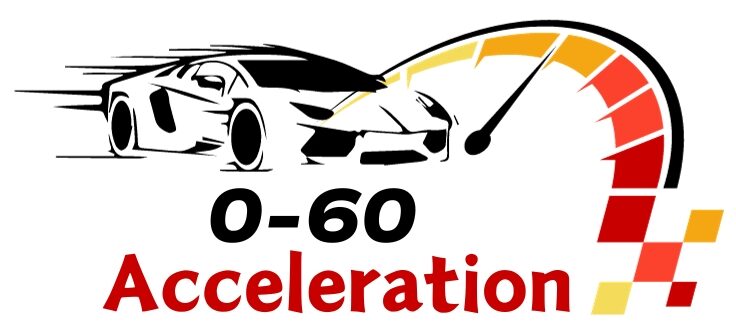
With its iconic design and thrilling performance, the Ford Mustang has long been an automotive legend. But just how quick is the latest iteration, the 2024 Ford Mustang GT? This muscle car has some impressive acceleration specs, but do they stack up against the competition?
Can the 2024 Ford Mustang GT still claim the crown for fastest 0-60 time amongst pony cars?
In short – yes. With a 0-60 mph time of 4.3 seconds, the Mustang GT remains highly competitive.
In this blog post, we’ll overview the Mustang GT’s power and performance metrics, comparing its acceleration, speed, and handling to rivals like the Chevy Camaro SS and Dodge Challenger R/T Scat Pack. We’ll also explore how the GT’s stats have evolved over time and what real owners are saying about its thrilling test-track and real-world acceleration. And for those looking to buy, we’ll provide a helpful guide covering new vs. used purchasing considerations. Strap in for a wild ride as we put the pedal to the metal on the 2024 Ford Mustang GT!
Mustang GT Overview

The Mustang GT is a high-performance variant of the Ford Mustang that has been in production since the 1960s. It is known for its powerful engine, sleek design, and impressive speed. In this section, we will provide an overview of the Mustang GT, including its history and key specifications.
History of the Mustang GT
The Mustang GT was first introduced in 1965 and has been a popular choice for car enthusiasts ever since. It was designed to be a more powerful and sporty version of the standard Mustang and quickly gained a reputation for its speed and performance. Over the years, the Mustang GT has undergone several changes and upgrades, but it has always remained true to its roots as a high-performance muscle car.
Key Specifications
The Mustang GT is powered by a 5.0-liter V8 engine that produces 468 horsepower and 415 lb-ft of torque. It comes with a six-speed manual transmission as standard, but a 10-speed automatic transmission is also available. The Mustang GT can go from 0-60 mph in just 4.3 seconds and has a top speed of around 155 mph.
Here are some of the key specifications of the Mustang GT:
| Specification | Value |
|---|---|
| Engine | 5.0-liter V8 |
| Horsepower | 468 hp |
| Torque | 415 lb-ft |
| Transmission | 6-speed manual / 10-speed automatic |
| 0-60 mph | 4.3 seconds |
| Top Speed | 155 mph |
Overall, the Mustang GT is a powerful and impressive car that is sure to turn heads. Whether you’re a fan of muscle cars or just looking for a high-performance vehicle, the Mustang GT is definitely worth considering.
Performance Metrics

Engine and Power
The 2024 Ford Mustang GT is powered by a revised and more revvy Coyote 5.0-liter V-8 engine, which produces an impressive 486 horsepower and 415 lb-ft of torque. The engine is paired with a six-speed manual transmission or a ten-speed automatic transmission, which allows for quick and smooth gear changes. The Mustang GT also features a rear-wheel-drive system, which provides excellent traction and stability.
Acceleration and Speed
The Mustang GT can accelerate from 0-60 mph in just 3.9 seconds, according to MotorTrend’s testing. This is an impressive performance for a car in its class. The Mustang GT also has a quarter-mile time of 11.83 seconds at 119.51 mph, which is faster than many of its competitors. The top speed of the Mustang GT is limited to 155 mph, which is a respectable speed for a car of this type.
Handling Characteristics
The Mustang GT has excellent handling characteristics, thanks to its advanced suspension system and precise steering. The car features an independent rear suspension, which provides better handling and a smoother ride. The Mustang GT also has a limited-slip differential, which helps to distribute power evenly to both rear wheels, providing better traction and stability. The car’s brakes are also impressive, with large, ventilated discs providing excellent stopping power.
Comparative Analysis
Mustang GT vs. Competitors
When it comes to the Mustang GT’s 0-60 performance, it holds its own against many of its competitors. The 2024 Mustang GT can go from 0-60 mph in just 4.3 seconds, putting it in direct competition with the Chevrolet Camaro SS and the Dodge Challenger R/T Scat Pack. The Camaro SS has a slightly faster 0-60 time of 3.9 seconds, while the Challenger R/T Scat Pack has a slightly slower time of 4.1 seconds.
However, the Mustang GT has an advantage over its competitors in terms of horsepower. With a 5.0-liter V8 engine that produces 468 horsepower and 415 lb-ft of torque, it outperforms the Camaro SS’s 6.2-liter V8 engine that produces 455 horsepower and 455 lb-ft of torque, and the Challenger R/T Scat Pack’s 6.4-liter V8 engine that produces 485 horsepower and 475 lb-ft of torque.
Historical Performance Trends
Over the years, the Mustang GT’s 0-60 performance has improved significantly. In 1967, the Mustang GT had a 0-60 time of 7.3 seconds, which was considered impressive at the time. However, as technology has improved, so has the Mustang GT’s performance. In 2024, the Mustang GT’s 0-60 time of 4.3 seconds is a testament to the advancements in automotive engineering.
Owner Experiences
When it comes to the Mustang GT’s 0-60 performance, owners have a lot to say about their experiences with this iconic sports car. From daily driving to track performance, the Mustang GT offers a thrilling ride that keeps drivers coming back for more.
Daily Driving
One thing that many Mustang GT owners appreciate is the car’s versatility as a daily driver. With its powerful engine and responsive handling, the Mustang GT is a joy to drive on both city streets and highways. Drivers can easily switch between different driving modes to adjust the car’s performance to their liking, whether they’re looking for a more comfortable ride or a more sporty feel.
In addition to its performance capabilities, the Mustang GT also offers a comfortable and spacious interior that makes it a practical choice for everyday use. With features like heated and ventilated seats, a premium sound system, and advanced safety technologies, the Mustang GT is a well-rounded car that can handle all of life’s adventures.
Track Performance
For those who want to push the Mustang GT to its limits, track performance is where this car truly shines. With its powerful engine and agile handling, the Mustang GT is a formidable force on the racetrack. Drivers can take advantage of features like launch control and track mode to optimize the car’s performance and achieve faster lap times.
One thing that sets the Mustang GT apart from other sports cars is its affordability. Despite its impressive performance capabilities, the Mustang GT is priced competitively and offers excellent value for its price. This makes it a popular choice among racing enthusiasts who want a high-performance car without breaking the bank.
Modifications and Upgrades

Aftermarket Parts
Mustang GT owners looking to improve their 0-60 times have a variety of aftermarket parts to choose from. Upgrading the engine with a cold air intake, exhaust system, and a performance tuner can provide significant gains in horsepower and torque. Other popular modifications include upgrading the suspension, brakes, and tires to improve handling and traction.
Aftermarket parts can be expensive, but they often provide a noticeable improvement in performance. It’s important to do thorough research before making any modifications to ensure compatibility and reliability.
Impact on 0-60 Times
Upgrading a Mustang GT with aftermarket parts can have a significant impact on its 0-60 time. For example, installing a cold air intake can provide a gain of up to 10 horsepower, while upgrading the exhaust system can provide a gain of up to 20 horsepower. Adding a performance tuner can provide even more gains, with some tuners claiming to add up to 50 horsepower.
Upgrading the suspension, brakes, and tires can also have a positive impact on the car’s 0-60 time. Improving handling and traction can allow the car to accelerate more quickly and efficiently.
Buying Guide

New vs. Used
When considering purchasing a Mustang GT, one of the first decisions to make is whether to buy new or used. Buying a new Mustang GT offers the latest technology and features, along with a manufacturer’s warranty. However, new cars can be more expensive and may depreciate quickly in the first few years. On the other hand, buying a used Mustang GT can save money and offer a wider range of options, but it may come with unknown maintenance issues and fewer warranty protections.
What to Look for
When shopping for a Mustang GT, there are a few key features to look for. The engine is one of the most important factors to consider, as it directly affects the car’s performance and speed. The Mustang GT typically comes with a V8 engine, which provides more power and acceleration than a V6 or four-cylinder engine.
Another important feature to consider is the car’s transmission. A manual transmission can offer a more engaging driving experience and better control over the car’s speed, while an automatic transmission may be more convenient for everyday driving.
Other features to consider include the car’s braking system, suspension, and overall handling. A good braking system can provide better stopping power, while a well-tuned suspension can offer a smoother ride and better cornering abilities. Additionally, a car with good handling can provide a more enjoyable driving experience and better control over the car’s movements.
When shopping for a Mustang GT, carefully weigh both new and used models. Key factors to evaluate include the engine, transmission, brakes, suspension and overall handling. Assessing these crucial components will help buyers select the ideal Mustang GT to fulfill their performance requirements and budget.
Test driving different model years and mileage ranges can provide valuable insights to make an informed purchase. Whether your priority is raw power or nimble cornering, there’s a Mustang GT configuration to satisfy your needs – you just have to know what to look for.






